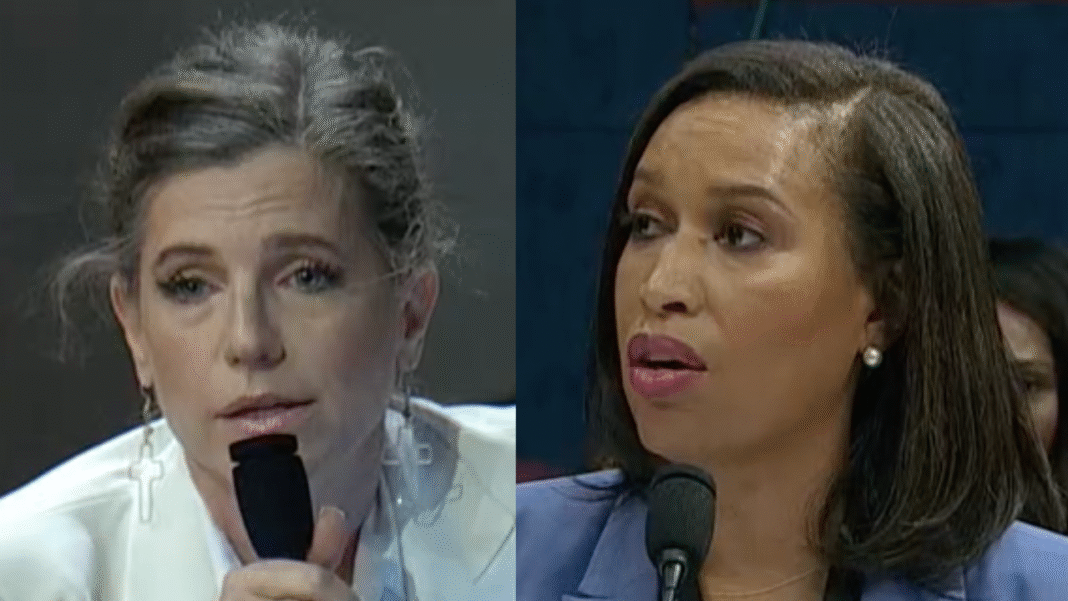Tensions Rise in D.C. Oversight Hearing: The Mace-Bowser Exchange
In a recent House Oversight Committee hearing focused on crime and safety in the District of Columbia, U.S. Rep. Nancy Mace (R-S.C.) engaged in a pointed exchange with D.C. Mayor Muriel Bowser. The atmosphere was charged as House Republicans aimed to underline what they interpret as a failure of Democratic leadership in the wake of President Donald Trump’s alarming federal crime emergency declaration for the nation’s capital.
Setting the Stage: A Crime Emergency
The context of this high-stakes hearing was shaped by recent federal actions, including the deployment of the National Guard and increased federal oversight of local law enforcement in response to rising crime rates in D.C. These measures, initiated by Trump, have sparked heated debates about the efficacy of local governance and the future of the nation’s capital.
Mace’s Frustration with D.C. Policies
As a controversial figure within Congress, Nancy Mace made headlines not just for her questioning style but for her criticisms of what she dubbed “DEI and gender-bender nonsense.” Introducing her proposed legislation, the “No DEI in D.C. Act,” Mace emphasized her desire to eradicate diversity, equity, and inclusion initiatives from local government practices. “This bill will rip the DEI and gender-bender nonsense out of the D.C. government root and branch,” she declared, advocating for a return to what she deems common sense.
Questioning the Mayor: A Battle of Wits
As Mace directed her questioning toward Mayor Bowser, she scrutinized various terms in D.C. laws, questioning the definitions of terms like “structural or institutional racism.” Her confrontational style reached its zenith when she asked Bowser, “What is a woman?” Bowser’s concise yet witty response—“I’m a woman. Are you a woman?… You’re looking at one”—elicited laughter from the audience, illuminating the tension between the two figures.
In another instance, Mace pressed Bowser on the term “birthing person,” to which Bowser simply replied, “I would assume it’s someone who gives birth.” These exchanges showcased the stark difference in their approaches to defining gender and identity, reflecting broader societal debates on these topics.
Interruptions and Interjections
The hearing took on a combative tone as Mace interrupted Bowser multiple times, leaving Bowser in a seemingly defensive position. When Bowser attempted to redirect the conversation towards Oversight Chairman James Comer for additional time, Mace asserted her control over the situation, insisting, “This is not her time. It’s my time.” Such moments underscored the high stakes and fierce emotions of the discussion.
Delving into Reparations
The conversation shifted to a particularly contentious issue: the establishment of a reparations commission in D.C. Mace questioned the rationale behind providing government benefits based on race, a line of inquiry that heightened the tension even further. Bowser clarified that the commission was intended for study rather than immediate reparations disbursement, contending that various eligibility criteria for existing benefits programs are already in place.
Mace didn’t hold back, expressing skepticism about Bowser’s responses and accusing her of evading direct answers. “You’re not answering any of these questions. I’ll give it to you, you’re slick,” Mace said, highlighting the friction that characterized their exchange.
The Political Landscape
Bowser’s responses were undoubtedly weighed down by the political pressures stemming from the White House. With Trump’s assertions that crime is rampant in D.C., Bowser navigated a complicated landscape wherein local governance faces scrutiny from federal authorities. As a non-state district, D.C. is particularly vulnerable to federal intervention, raising concerns about autonomy in local affairs.
In a statement via Truth Social, Trump hinted at potential further federal control, asserting, “I’ll call a National Emergency, and Federalize, if necessary!” Such threats loom large over the local administration, complicating any defense Bowser could mount regarding her leadership and crime policies.
Conclusion: A Microcosm of National Debate
The tense exchanges between Mace and Bowser during this oversight hearing reflect broader national conversations about governance, crime, and the role of identity politics in public policy. As both sides of the aisle grapple with differing views on these issues, the implications for the future of D.C. governance—and for broader American political discourse—remain profound.



